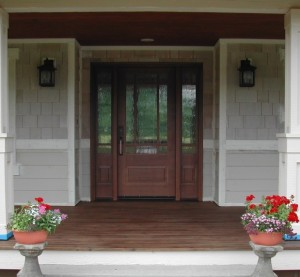I came across an article, and wanted to pass it along!
It’s not all bad; it’s also not all good.

I came across an article, and wanted to pass it along!
It’s not all bad; it’s also not all good.

 Over the past few years, the percentage of 25-to-34-year-old Americans living with their parents has been at a record high of nearly 15%. Student debt and difficulty finding a job are sending millennials back home in droves — and though this type of arrangement is certainly easier on the wallet, it can wreak havoc on a young adult’s self-image.
Over the past few years, the percentage of 25-to-34-year-old Americans living with their parents has been at a record high of nearly 15%. Student debt and difficulty finding a job are sending millennials back home in droves — and though this type of arrangement is certainly easier on the wallet, it can wreak havoc on a young adult’s self-image.
Here is the full article.
I don’t really agree with everything in the article. The article is not based upon research, but it based upon three women’s experiences. However, I do know that emerging adults have varied and complex emotions when moving back home which is partially due to societal pressure, and their desire to feel like an “adult.”
Research indicates that most parents and emerging adults enjoy their time spent at home. In his book, Arnett says, “When kids boomerang home, they bring more pleasure than pain. (Arnett, xi) The book also says that “Of the parents who have an emerging adult child living with them, 61 percent describe their feelings about it as “mostly positive” and only 6 percent describe the experience as “mostly negative.”
For this reason, it is important we redefine adulthood according to the three developmental tasks rather than where you sleep at night.
Resources:
Getting to 30 by Jeffrey Arnett and Fishel
According to research, “40% of 18 to 34 year olds are living at home with one parent or both. Looking at the younger, 18-to 24 year-old group, more than half have moved back home, at least for a time, in the past few years- or never moved out. Ther percentage is about the same for men and women. (Arnett, Getting them to 30, 109)
In a society where more emerging adults are living at home, adulthood cannot be based upon markers such as living independently, but upon the deeper Biblical principles of Vocation, Autonomy, and Community.
While living at home still carries a negative stigma in many social circles, living at home is not always a negative experience – for the child or the parent. “Almost 70% of young people 18-34 who are living at home with their parents say they are very satisfied with family life.” (Arnett, 110)
In this video, the speaker makes several points to illustrate the difference between someone who lives with parents as an adult versus someone who lives at home with an immature perspective.
Here is a link to the full video.
The video states that those who live at home as a Child…
Those who live at home as an Adult…
While the fact that you are living with your parents does not make you a child, how you act while living at home does indicate your maturity.
One of the first points made in the video is that there are several healthy reasons why children choose to live with their parents (including finances and physical health). While the predominant western mindset values living independently, many cultures have always valued communal living for extended families.
So are you living at home like an Adult or a Child?
Other Links:
I came across an article this week that focuses on the increase of women who are living at home. While the article focuses on the increase of women, the numbers of women and men living with their parents continues to increase.
We need to explore what this trend means for the church.

1. In a society where more emerging adults are living at home, adulthood cannot be based upon markers such as living independently, but upon the deeper Biblical principles of Vocation, Autonomy, and Community.
2. New boundaries must be established within the home when a child moves home to further rather than delay the child’s development. (Setting Boundaries While Living at Home)
3. We must avoid criticizing or shaming those who live at home. We must avoid criticizing or shaming parents who allow their children to live at home.
4. We must be prepared to counsel emerging adults as they decide where to live, and how it will affect their lives (spiritually, mentally, physically, and financially).
This is only scratching the surface of this issue. Please leave your thoughts below to further the discussion.
Other Links:
 Dr. G. David Boyd is the Managing Director of EA Resources, a non-profit that seeks to equip those who minister to emerging adults.
Dr. G. David Boyd is the Managing Director of EA Resources, a non-profit that seeks to equip those who minister to emerging adults.

I came across this article, and wanted to share it with my readers. Heather Krause is a statistician who works with nonprofit organizations. As you read, here are a few thoughts.
1. If you are making lunches for an emerging adult, you are not helping them, but discouraging their development (through hindering their personal autonomy).
2. Although “moving out” is considered the pinnacle marker of adulthood, it is not adequate for establishing adulthood. Assuming that proper boundaries are established, families can remain living together their entire lives.
3. The author states that she doesn’t care about doing housework that her grown children should be doing. I believe that this is due to the fact that many adults fail to redefine their lives when children move out. After years of caring for children, an empty nest requires that the individual redefine their personal lives, their marriage, and their home.
Dr. G. David Boyd
![bird-nest-tree-2028508-o[1]](http://www.earesources.org/wp-content/uploads/2013/10/bird-nest-tree-2028508-o1-300x300.jpg) When Your Children Come Back to Roost
When Your Children Come Back to Roost
Emerging adults are not the only ones who are struggling with elusive dreams these days. Parents who for years dreamed of the “empty nest” are finding their children coming back to roost. According to the Current Population Survey in 2001, 50.25% of adults (ages 18 to 24) live with parents, and 10.6% of adults (ages 25 to 34) reside with parents. Continue reading
![arde-ardeaalba-egret-2476872-h[1]](http://www.earesources.org/wp-content/uploads/2013/10/arde-ardeaalba-egret-2476872-h1-300x300.jpg) How to Make Living at Home a Positive Experience.
How to Make Living at Home a Positive Experience.
Let’s get real. Few baby birds having successfully left the nest ever desire to return. Although they remember the good things about the nest, it is still a nest. Continue reading